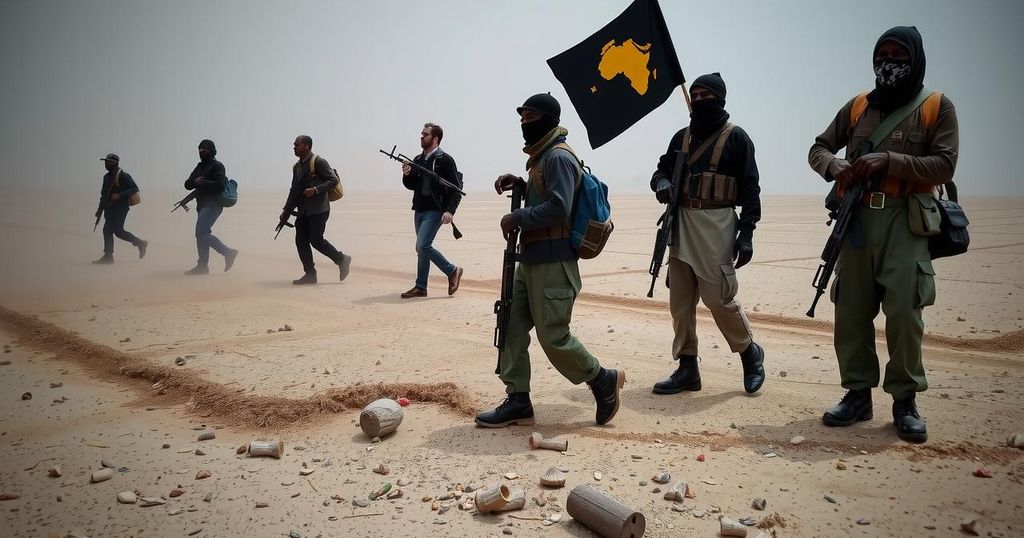Climate change
AFRICA, AFRICA COMMAND, ASIA, CHINA, CLIMATE, CLIMATE CHANGE, FARRELL, FOOD SECURITY, FOREIGN POLICY, GLOBAL WARMING, ISLAMIC STATE, JOHN KIRBY, MAUREEN FARRELL, MEXICO, MICHAEL LANGLEY, MOROCCO, NORTH AMERICA, PENTAGON, SAHARAN AFRICA, SAHEL, SOMALIA, THE WASHINGTON POST, U. S, WASHINGTON POST
Marcus Li
0 Comments
Pentagon Official Warns of Climate Change’s Role in Extremist Recruitment in Africa
A senior Pentagon official highlighted how climate change facilitates recruitment for jihadist groups in Africa, citing environmental stresses such as water insecurity and agricultural decline. These conditions create desperation, making individuals more susceptible to extremist ideologies. Reports indicate a significant rise in jihadist influence, particularly from the Islamic State, demonstrating a concerning trend that complicates security efforts in the region.
A senior Pentagon official has raised concerns regarding how climate change exacerbates recruitment for jihadist groups in Africa. Maureen Farrell, the Pentagon’s deputy assistant secretary of defense for African affairs, emphasized during her address that environmental degradation leads to instability, competition for resources, and population dislocation, which extremist factions exploit to gain new followers. The situation has deteriorated, with the Islamic State’s presence in Africa reportedly increasing and jihadist groups expanding their influence across the continent. Farrell cited the Somali jihadist group al-Shabab’s experiences during droughts as evidence of this trend. The Department of Defense’s efforts to counter such groups have been largely unsuccessful, as indicated by rising instances of violence in the region.
The intersection of climate change and security in Africa has become a critical issue, particularly as jihadist groups exploit vulnerabilities created by environmental changes. Increased flooding, water scarcity, and diminished agricultural land have exacerbated economic hardships, driving individuals toward extremism. Recent reports highlight a significant rise in jihadist terrorism in Africa, with the Islamic State and al-Shabab at the forefront of these developments. The United States military has noted a tenfold increase in jihadist activity since 1998, illustrating the urgency of addressing both climate and security issues in tandem.
In conclusion, the effects of climate change in Africa are generating significant security challenges that benefit extremist organizations. The remarks made by Pentagon officials underscore the importance of recognizing environmental factors as crucial elements in the fight against terrorism. As areas face increasing ecological vulnerability, there is a pressing need for comprehensive approaches that integrate climate resilience with counterterrorism strategies to combat this growing threat.
Original Source: dailycaller.com




Post Comment